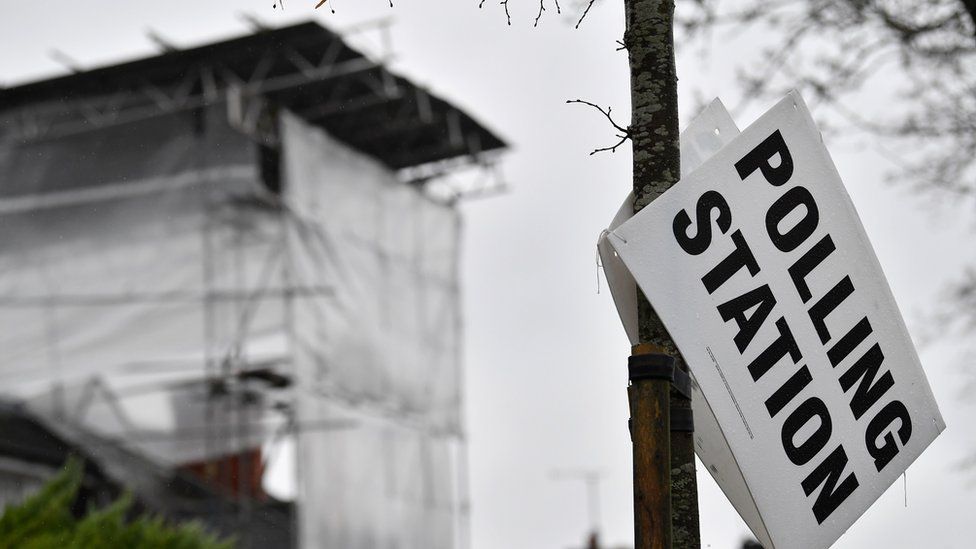General election 2019: Misleading campaigns 'undermined trust'
- Published
- comments

Misleading campaign techniques risk undermining trust in elections, the UK's polling watchdog has warned.
In a report, the Electoral Commission said it had received a "large number of complaints" relating to the 2019 general election.
Examples included unclearly branded social media pages, edited video clips, and leaflets mimicking local newspapers.
It added that "real change" was needed to protect confidence in elections.
The watchdog also called on candidates and parties to take "greater responsibility" for how their campaigns might impact on public trust.
It added that campaigners would have to work together to agree "new laws or standards of conduct" to improve the situation for future elections.
"We cannot afford to miss the window of opportunity between now and the next scheduled general election," it added in its official review of December's poll, external.
The commission said there had been concerns about campaigns from "across the political spectrum," although it did not highlight specific examples.
A YouGov online survey of 5,450 adults, taken in the immediate aftermath of December's election, found voters thought information on printed campaign material wasn't always clear, while some online ads lacked any information about their source.
Of those who thought the election had not been well-run, nearly half raised concerns over the truthfulness of campaigning as an issue.
Over half said there was "inadequate control" of campaigning via social media, whilst two-thirds also thought "media bias" had been a problem.
In all 69% of voters said they were "very or fairly confident" the election was well-run overall - lower than for recent polls but similar to the 2010 election.
'Aberconwy Future' leaflet produced by the Conservative Party
During the campaign, political parties were warned over using leaflets imitating local newspapers, by industry body the Society of Editors.
The group said the long-established technique should stop as it risked undermining voters' trust in local publications.
The Newsquest group, which publishes a number of local titles, made the same request to main party leaders and called the practice "extremely worrying".
Concern was also raised about leaflets encouraging tactical voting which suggested the contest in a particular seat was closer than in reality.
Unregulated ads
Advertising in the UK is regulated by the Advertising Standards Authority. Its rules prohibit misleading information and require advertisers to have "documentary evidence" to support their claims.
But political advertising is regulated outside of the ASA. And the electoral law that applies "doesn't require claims in political campaigns to be truthful or factually accurate," according to the House of Commons library.
At the 2019 election, the Conservatives faced criticism after rebranding of one of their Twitter accounts as a "fact-checking" site during a televised leaders' debate.
Foreign Secretary Dominic Raab said "no-one will have been fooled" by the site, which he defended as an "instant rebuttal mechanism" to push back against claims made by Labour.
'Inaccurate' claims
The party also defended one of its Twitter video posts which appeared to be edited in order to make Labour's Sir Keir Starmer, then the party's shadow Brexit secretary, seem unable to answer a question on Brexit.
Former chairman James Cleverly said all social media videos required some editing down, and the "humorous" clip had highlighted Labour's "chaotic" Brexit stance.
In an analysis of paid-for Facebook ads in the first four days of December, researchers First Draft, external suggested 88% of the Conservatives' most widely-promoted ads featured claims which had been flagged by independent fact-checking organisations (including BBC Reality Check) as not correct or not entirely correct.
The organisation also found hundreds of examples of the Liberal Democrats using allegedly misleading graphics and bar charts.
And it highlighted seven Labour Party ads, which linked to internet pages containing figures fact-checking organization Full Fact said were "inaccurate" or "need more context".
- Published14 November 2019